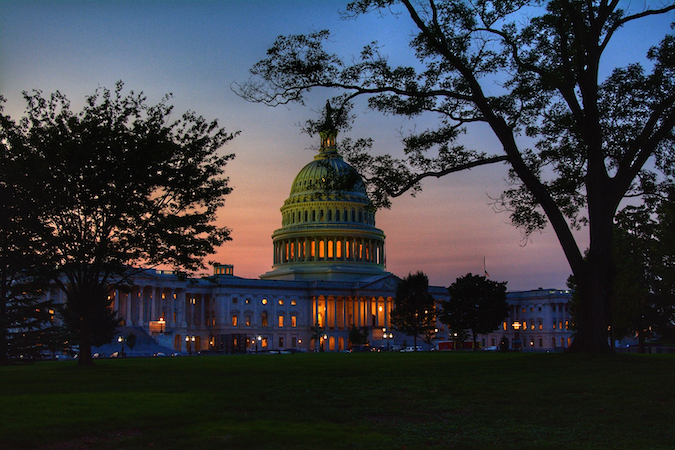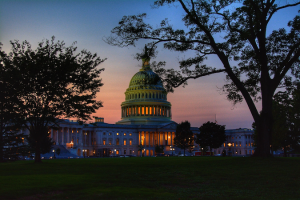Join Our Telegram channel to stay up to date on breaking news coverage
Between July 26 and July 28, there was significant legislative movement in Congress concerning cryptocurrency. The focus of these actions was to establish regulations before the August break, with plans to reconvene on September 12th for further deliberations. Below are the crucial legislative components currently at stake.
Countering Illegal Finances
Some figures in Congress, led by Elizabeth Warren, have raised concerns about cryptocurrency being an avenue for illegal financial activities. Despite pushback from the industry, there’s a need to ensure that cryptocurrencies aren’t misused, while also preserving user privacy. Consequently, lawmakers are focusing on ensuring crypto providers align with the Bank Secrecy Act, governed by the Treasury’s Financial Crimes Enforcement Network (FinCEN). In light of this, Congressman Tom Emmer introduced the “Blockchain Regulatory Clarity Act”. Additionally, the “Financial Technology Protection Act” is aiming to establish a special group to address issues of illegal finance in the crypto domain.
Drawing the Line: SEC vs. CFTC
The role of the SEC and CFTC in governing the crypto market has been under discussion for a while. The challenge lies in defining when a token acts as a security or commodity. There have been instances where the SEC considers nearly all tokens as securities, excluding bitcoin. However, many in Congress, along with the broader crypto community, don’t agree. This has prompted initiatives to create legislation that would delineate the conditions under which a digital asset can be categorized. This recent wave of activity saw the progression of the “Financial Innovation and Technology (FIT) for the 21st Century Act“, backed by Congressman French Hill and others. This act was reviewed by the House Financial Services Committee on July 26, and by the House Agriculture Committee the day after.
Important action you can take to protect the value of your crypto in America:
Today, two House committees started voting to take an important step on legislation that will create regulatory clarity for crypto. They will continue tomorrow. The bill will evolve during the…
— Brian Armstrong (@brian_armstrong) July 27, 2023
Turbulence in Stablecoin Regulation
The growing influence of stablecoins has triggered concerns in Washington. There’s a fear that a dominant token might diminish the U.S. government’s capability to control monetary policy. Today, the stablecoin market has swelled past $120 billion, with Tether and Circle being significant players. Current legislative endeavors are concentrating on framing regulations for stablecoin issuance, redemption, and collateral guidelines. Notably, the “Clarity for Payment Stablecoins Act of 2023” saw lawmakers divided during its review.
Yes! An important vote on an important protection for US investors. It turns out Ds and Rs can do good things when they focus on the American people. https://t.co/ktEdX2ZHvm
— paulgrewal.eth (@iampaulgrewal) July 28, 2023
National Security Implications and Anti-Money Laundering
On July 28, several senators reintroduced the “Digital Asset Anti-Money Laundering Act of 2023”, emphasizing stricter compliance for the crypto sector concerning the Bank Secrecy Act (BSA) and Anti Money-Laundering Act (AML). Another act named the “CANSEE Act Crypto-Asset National Security Enhancement and Enforcement Act” also made its way, focusing particularly on the decentralized finance (DeFi) segment of the crypto market.
User Rights and Regulatory Clarity for Blockchain
In the mix is also the “Keep Your Coins Act” championed by Congressman Warren Davidson. This act aspires to uphold individual rights to manage their cryptocurrency. Another legislation, the “Blockchain Regulatory Certainty Act”, seeks to ensure specific blockchain systems are not categorized as money services businesses.
The Road Ahead
With any legislation, it’s imperative for it to secure approval from both Congressional houses and then the president. One of the significant amendments concerning Anti Money Laundering (AML) in the NDAA needs to be harmonized with the House’s version. Previous experiences, like the intense debates in 2021 over crypto tax stipulations, offer some context for upcoming discussions.
There are also indications of the White House beginning to assert its influence on these legislative proposals. A key point of contention appears to be the scope of regulatory oversight: should it be solely federal, or should state officials have an equal say?
Both the FIT Act and the stablecoin legislation have significant implications for the future of cryptocurrencies in the U.S. Observing the response from both political spectrums will provide insight into the possible trajectory of these policies. Moreover, the emphasis on national security and the push for a comprehensive Know Your Customer system, especially for DeFi, implies the industry is at a crucial juncture.
Investors or Freedom Lovers?
For investors of the big, institutional kind, understanding these legislations is vital. The “Financial Innovation and Technology Act for the 21st Century Act“, if passed, could provide more clarity, potentially boosting the digital asset market. On the other hand, the regulations surrounding stablecoins might inject more liquidity into the market. However, if AML/KYC are too strict, they could dampen demand for DeFi platforms in the U.S., but could have the contrary effect upon DeFi platforms abroad: attract more and more people toward to what some, may say, was the original goal of crypto: to escape centralization and abusive government control.
Related News
- Historic U.S. Crypto Bills Passed: A Leap into the Future
- House Bill May Endanger Crypto Prospects and Strengthen the SEC
- U.S. House Committees Introduce Act to Regulate Cryptocurrency Industry Amidst SEC Crackdown
- 15 Best DeFi Coins to Buy in 2023 – Decentralized Finance Tokens
Best Wallet - Diversify Your Crypto Portfolio
- Easy to Use, Feature-Driven Crypto Wallet
- Get Early Access to Upcoming Token ICOs
- Multi-Chain, Multi-Wallet, Non-Custodial
- Now On App Store, Google Play
- Stake To Earn Native Token $BEST
- 250,000+ Monthly Active Users
Join Our Telegram channel to stay up to date on breaking news coverage


